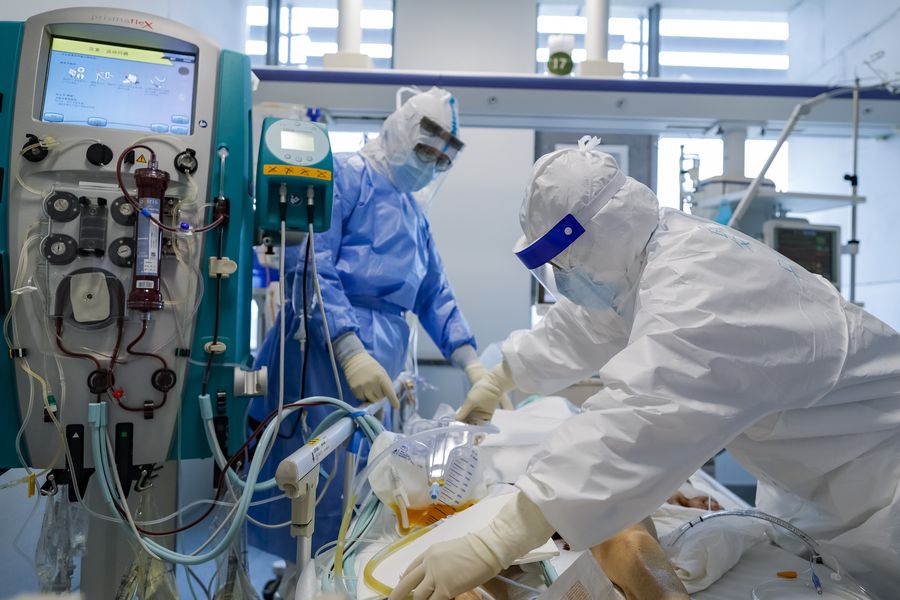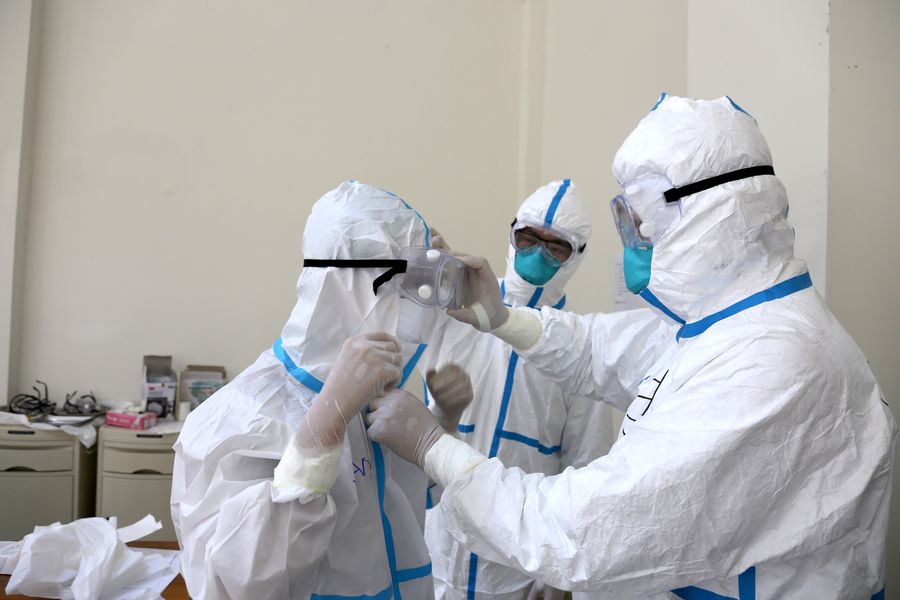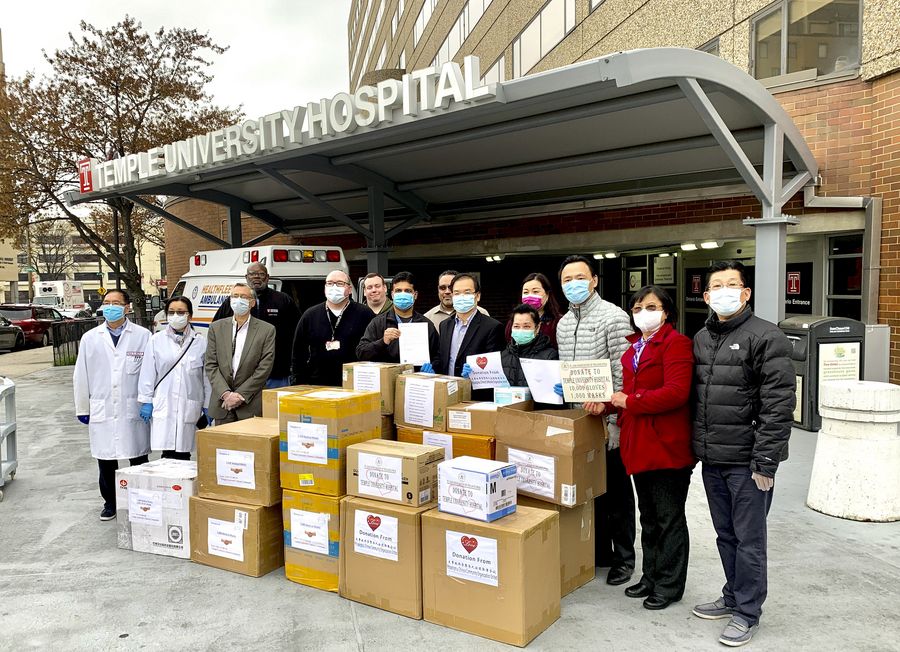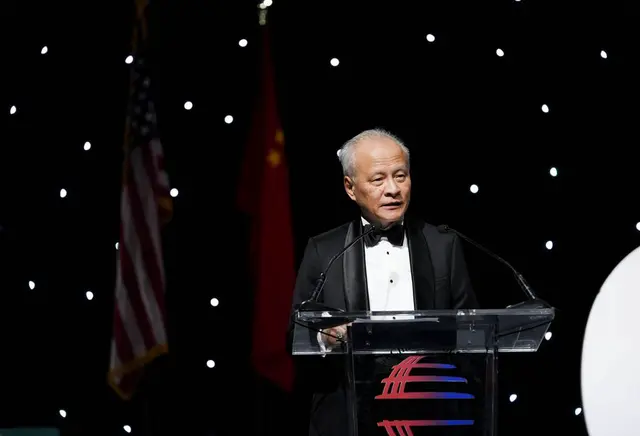All countries should contribute to international efforts to combat COVID-19, prioritizing people's life and health and rejecting any attempts to politicize the pandemic, Chinese Ambassador to the United States Cui Tiankai has said.
"I think what we have learned from our experience and from the experience of other countries is that we really have to put people's lives and health first. This is the most important thing for us to do. And we should do it at any cost," Cui said in an interview on April 3 with Ian Bremmer at weekly digital and broadcast show Gzero World, which was aired nationally on Saturday by American Public Television.
"We have to save lives, to protect people's health, especially the more vulnerable groups, old people, people with underlying diseases, and maybe poor people in many countries. We have to make this our top priority at any cost," said Cui responding to a question on China's advice to the United States on combating the disease.

Medical workers attend to an ICU patient at Tongji Hospital in Wuhan, central China's Hubei Province, April 11, 2020. (Xinhua/Shen Bohan)
"Number two, we really have to enhance international cooperation," he said, "because unless we have global success in containing and treating this virus, no country will be safe, including China, including the United States."
"We really have to reject any attempt at taking political advantage of other people's sufferings," he said, adding "unfortunately, there are still elements here, maybe elsewhere in the world, who are making such an attempt."
"We have to work together and firmly reject all such attempts. Then in the long run, I think we should draw the proper lessons from this pandemic," he said.

A staff member transfers medical supplies donated by China at the Cuban Ministry of Public Health's warehouses in Havana, Cuba, April 9, 2020. (Photo by Joaquin Hernandez/Xinhua)
"For the last few years, so many people were talking about strategic rivalry among the major powers, the so-called 'Thucydides' trap,' and so on and so forth," he noted.
"But very few people anticipated that such an invisible virus has made such a big impact on all of us," he said. "So I think people have to give serious thinking to what is a real threat for all of us. What is our real enemy? And where lies our common interest? How we should respond globally together to such global challenges?"
Noting "this is a huge crisis for all of us," the ambassador dismissed the allegations of some Western politicians that China got a political agenda in helping other countries fight the virus.
"What is driving our action right now is our understanding that we're all part of the community," he said. "China cannot be safe from the virus if all the other countries are still struggling ... in a sense, we are also helping ourselves by helping others."

Chinese medical experts help a local medical staff wear protective suit at the North Okkalapa General Hospital in Yangon, Myanmar, April 10, 2020. (Xinhua/Zhang Dongqiang)
"And I don't think our aim is to be the so-called the 'leader of the world,' because we never believe that there should be a leader for the world. We believe in equality of all the countries," he said. "Of course, some countries are more powerful, more capable of doing things and should make bigger contribution. And we're ready to do that."
"But still, what we really want to have is mutual respect, true respect with each other, and full recognition that differences among countries will continue to exist. We should see these differences as a source of diversity, complementarity rather than confrontation or conflicts," he said.

Members of Philadelphia Chinese Community Organization United and Fujian Association of Philadelphia pose for a photo with medical workers after delivering donated medical supplies to Temple University Hospital in Philadelphia, the United States, on March 30, 2020. (Xinhua)
"I think people welcome our help, of course, and we are trying our best to deliver some technical assistance, some medical supplies, and share with them our own experience of dealing with this virus. But we also make it clear what we have done in China is based on China's conditions, on China's circumstances," he said.
"So there are things that we are doing in China, which work for China, they may not be very suitable for other countries. So we keep telling people this: you have to develop a whole strategy based on your own conditions that would work for your own country," he added.
(ASIA PACIFIC DAILY)
 简体中文
简体中文

